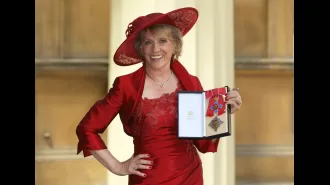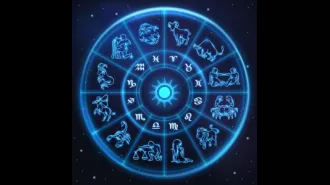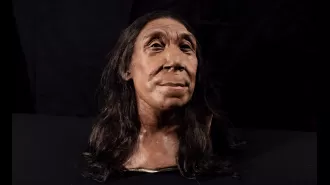Conservatives divided over capitalism, yet campaigns largely ignoring the debate.
Right-wingers fight over who will lead & shape the Republican party's future.
July 28th 2023.

At any other moment in the past half-century, the statement that “political freedom cannot long exist without economic freedom,” or that “the free enterprise system is the foundation of prosperity” would have seemed like a given. But in today’s topsy-turvy Trump-era conservative world, such sentiments have taken on a new level of significance.
This is why last week’s publication of Freedom Conservatism: A Statement of Principles was such a big deal. The document was signed by an A-list group of conservative writers, scholars and activists, including Dick Armey, Karl Rove, Grover Norquist, George Will, and many more. It was the right-of-center equivalent of praising mom and apple pie.
The statement was significant because it illustrated that the debate within the conservative movement has changed. The energy has come from the folks launching once-unthinkable broadsides from the right against “market fundamentalism” and “libertarian dogma.” This debate has incubated its own establishment of organizations, major public events, and Beltway wonk-world celebs.
The manifesto was a way of taking the initiative and announcing to the world that conservatives are still here. They are “the idea generators of the conservative movement.” As Avik Roy, president of the Foundation for Research on Equal Opportunity and one of the organizers of the statement, said: “That then allows those politicians who are saying, okay, who should I be going to, for a policy agenda? Who should I be relying on to develop the ideas as I run?”
The manifesto battle also contains a nod to history, accompanied by a photo of the old Sharon, Conn., home of conservative patron William F. Buckley. It’s meant as an updated version of the famous “Sharon Statement” Buckley and a cast of young conservative activists signed there in 1960.
The difference between the 1960s and now is that many of Roy’s signatories have spent decades in the heart of establishment conservative institutions. However, some have lamented that there are not enough millennials and zoomers involved.
Ultimately, the statement has sparked debate within the Beltway conservative firmament, although it is not likely to be a major topic on the Republican campaign trail. The presidential contest still remains dominated by Trump and his grievances, with only occasional culture-war intrusions. For voters who don’t spend much time hanging out at Washington policy conferences, the ideological contours of the current primary season are hard to discern.
At any other moment in the past half-century, a statement about the importance of economic freedom and free enterprise would have been taken for granted. But in the Trump era, the right-wing conservative world is anything but ordinary. This was evident last week when an "A-list" group of conservative writers, scholars, and activists published their own manifesto, Freedom Conservatism: A Statement of Principles.
The document contained a strong defense of traditional conservative values, stating that “political freedom cannot long exist without economic freedom,” and that “the free enterprise system is the foundation of prosperity.” It was signed by prominent figures such as Dick Armey, Karl Rove, Grover Norquist, and George Will.
This manifesto was a major event because the old Republican beliefs are now being challenged from within the conservative movement. An alternative, nationalist approach has been gaining momentum, with its own organizations, events, and public figures. These new ideas have created a fierce debate between the traditional conservatives and the nationalists.
Avik Roy, president of the Foundation for Research on Equal Opportunity and one of the manifesto's organizers, explained to me the importance of this statement. He said that many young people in politics have no memory of the pre-Trump era and are now being influenced by nationalist ideas. He and the other signatories felt they had to take a stand and remind people that traditional conservative principles still matter.
This manifesto is part of a wider trend, as other groups from the right have released statements of their own. For example, National Conservatism: A Statement of Principles, was released last year, and included support for manufacturing and anti-globalization views.
But despite this intellectual activity, it has yet to make a major impact on the Republican campaign trail. For now, the ideological divide between traditional and nationalist conservatism remains largely unknown to the public.
This is why last week’s publication of Freedom Conservatism: A Statement of Principles was such a big deal. The document was signed by an A-list group of conservative writers, scholars and activists, including Dick Armey, Karl Rove, Grover Norquist, George Will, and many more. It was the right-of-center equivalent of praising mom and apple pie.
The statement was significant because it illustrated that the debate within the conservative movement has changed. The energy has come from the folks launching once-unthinkable broadsides from the right against “market fundamentalism” and “libertarian dogma.” This debate has incubated its own establishment of organizations, major public events, and Beltway wonk-world celebs.
The manifesto was a way of taking the initiative and announcing to the world that conservatives are still here. They are “the idea generators of the conservative movement.” As Avik Roy, president of the Foundation for Research on Equal Opportunity and one of the organizers of the statement, said: “That then allows those politicians who are saying, okay, who should I be going to, for a policy agenda? Who should I be relying on to develop the ideas as I run?”
The manifesto battle also contains a nod to history, accompanied by a photo of the old Sharon, Conn., home of conservative patron William F. Buckley. It’s meant as an updated version of the famous “Sharon Statement” Buckley and a cast of young conservative activists signed there in 1960.
The difference between the 1960s and now is that many of Roy’s signatories have spent decades in the heart of establishment conservative institutions. However, some have lamented that there are not enough millennials and zoomers involved.
Ultimately, the statement has sparked debate within the Beltway conservative firmament, although it is not likely to be a major topic on the Republican campaign trail. The presidential contest still remains dominated by Trump and his grievances, with only occasional culture-war intrusions. For voters who don’t spend much time hanging out at Washington policy conferences, the ideological contours of the current primary season are hard to discern.
At any other moment in the past half-century, a statement about the importance of economic freedom and free enterprise would have been taken for granted. But in the Trump era, the right-wing conservative world is anything but ordinary. This was evident last week when an "A-list" group of conservative writers, scholars, and activists published their own manifesto, Freedom Conservatism: A Statement of Principles.
The document contained a strong defense of traditional conservative values, stating that “political freedom cannot long exist without economic freedom,” and that “the free enterprise system is the foundation of prosperity.” It was signed by prominent figures such as Dick Armey, Karl Rove, Grover Norquist, and George Will.
This manifesto was a major event because the old Republican beliefs are now being challenged from within the conservative movement. An alternative, nationalist approach has been gaining momentum, with its own organizations, events, and public figures. These new ideas have created a fierce debate between the traditional conservatives and the nationalists.
Avik Roy, president of the Foundation for Research on Equal Opportunity and one of the manifesto's organizers, explained to me the importance of this statement. He said that many young people in politics have no memory of the pre-Trump era and are now being influenced by nationalist ideas. He and the other signatories felt they had to take a stand and remind people that traditional conservative principles still matter.
This manifesto is part of a wider trend, as other groups from the right have released statements of their own. For example, National Conservatism: A Statement of Principles, was released last year, and included support for manufacturing and anti-globalization views.
But despite this intellectual activity, it has yet to make a major impact on the Republican campaign trail. For now, the ideological divide between traditional and nationalist conservatism remains largely unknown to the public.
[This article has been trending online recently and has been generated with AI. Your feed is customized.]
[Generative AI is experimental.]
0
0
Submit Comment





